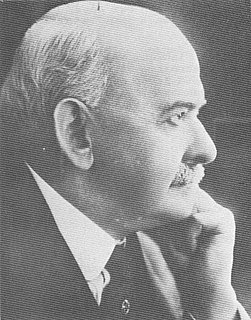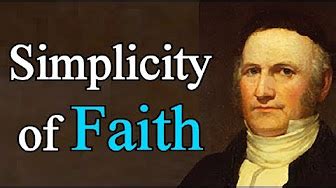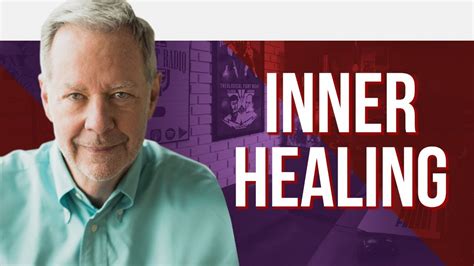A Quote by Thomas Boston
The believer is sensible of his infirmities, for it is supposed that he is wrestling under them. He sees, he feels, that he is not man enough for his work; that his own hands are not sufficient for him, nor his own back for his burden; this is what drives him out of himself to the grace that is in Christ Jesus. And thus he lies open to the help of the Spirit, while proud nature in unbelievers is left helpless.
Related Quotes
Some souls think that the Holy Spirit is very far away, far, far, up above. Actually he is, we might say, the divine Person who is most closely present to the creature. He accompanies him everywhere. He penetrates him with himself. He calls him, he protects him. He makes of him his living temple. He defends him. He helps him. He guards him from all his enemies. He is closer to him than his own soul. All the good a soul accomplishes, it carries out under his inspiration, in his light, by his grace and his help.
When the father dies, he writes, the son becomes his own father and his own son. He looks at is son and sees himself in the face of the boy. He imagines what the boy sees when he looks at him and finds himself becoming his own father. Inexplicably, he is moved by this. It is not just the sight of the boy that moves him, not even the thought of standing inside his father, but what he sees in the boy of his own vanished past. It is a nostalgia for his own life that he feels, perhaps, a memory of his own boyhood as a son to his father.
What is it to 'walk in the Spirit'? It is not self-occupation, nor even occupation with the Spirit. Walking according to the Spirit is occupation with the Lord Jesus Christ in glory. If the believer ever looks to the Lord Jesus, depends upon Him, draws all his needs from Him- if He is his All in all- then the believer walks according to the Spirit of Christ.
No man could bring himself to reveal his true character, and, above all, his true limitations as a citizen and a Christian, his true meannesses, his true imbecilities, to his friends, or even to his wife. Honest autobiography is therefore a contradiction in terms: the moment a man considers himself, even in petto, he tries to gild and fresco himself. Thus a man's wife, however realistic her view of him, always flatters him in the end, for the worst she sees in him is appreciably better, by the time she sees it, than what is actually there.
But they all stood beneath the cross, enemies and believers, doubters and cowards, revilers and devoted followers. His prayer, in that hour, and his forgiveness, was meant for them all, and for all their sins. The mercy and love of God are at work even in the midst of his enemies. It is the same Jesus Christ, who of his grace calls us to follow him, and whose grace saves the murderer who mocks him on the cross in his last hour.
The skeptic says that the believer has lost his own mind under God. On the contrary, it is the people who follow God who are most like his children, who willingly and consciously walk in his will; but those who oppose him oppose him vainly and at their own expense, and, figuratively, seem to be more like his tools. They don't diminish his glory, but instead he still manages to use them in ways of unconsciously carrying out his will.
Believing, repenting, and the like, are the product of the new nature; and can never be produced by the old corrupt nature... as the child cannot be active in his own generation, so a man cannot be active in his own regeneration. The heart is shut against Christ: man cannot open it, only God can do it by his grace.
Jesus has many lovers of His kingdom of heaven, but he has few bearers of His Cross. Many desire His consolation, but few desire His tribulation. He finds many comrades in eating and drinking, but He finds few hands who will be with Him in His abstinence and fastingBut those who love Jesus purely for Himself, and not for their own profit or convenience, bless Him as heartily in temptation and tribulation and in all other adversities as they do in time of consolation. And if He never sent them consolation, they would still bless and praise Him.
Strange is the vigour in a brave man's soul. The strength of his spirit and his irresistible power, the greatness of his heart and the height of his condition, his mighty confidence and contempt of danger, his true security and repose in himself, his liberty to dare and do what he pleaseth, his alacrity in the midst of fears, his invincible temper, are advantages which make him master of fortune.
































